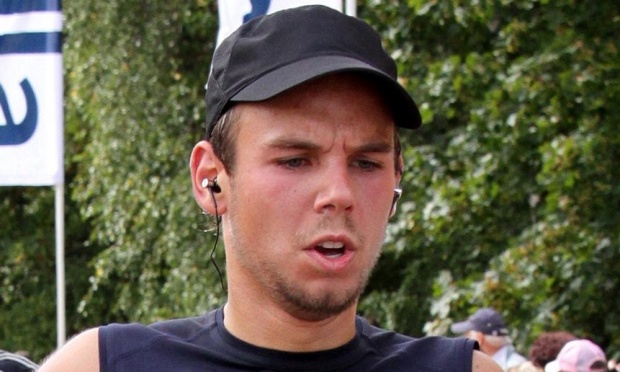Andreas Lubitz, the Germanwings co-pilot who is believed to have deliberately crashed flight 4U9525 into a mountain in southern France, suffered from suicidal tendencies several years ago, a statement from investigators has said.
“The co-pilot received psychotherapy treatment, with recorded suicidal tendencies, several years ago – before receiving his pilot’s licence,” the press statement from Düsseldorf chief prosecutor Ralf Herrenbrück said on Monday.
But the prosecutor also pointed out that the symptoms had not been noted during subsequent treatment, which appears to have lasted until shortly before last Tuesday’s crash.
“In the following period and until recently there were further doctors’ visits and sick notes, without suicidal tendencies or aggression towards others attested,” the statement said.
Lubitz, 27, is believed to have intentionally crashed the plane, killing all 150 people on board.
Herrenbrück remained reluctant to interpret the evidence, underlining that no claim of responsibility had been found during the search of Lubitz’s home. “Please understand that the state prosecutor cannot and will not speculate on the motives of the deceased co-pilot,” he said. “Investigative authorities are obliged to adhere to the facts alone.”
“No circumstances have been found in his direct personal or family circles or at his workplace that offer solid indications of a possible motive,” he added.
It emerged on Friday that Lubitz had visited Düsseldorf University hospital on 10 March, for what the hospital would only describe as a “diagnostic evaluation”. Citing patient confidentiality, a brief hospital statement said it would not reveal any further details, but insisted that media reports that he had been treated for depression there had been false. The New York Times reported that the treatment had been for eyesight problems.
Some German politicians have proposed that patient confidentiality rules should be relaxed for cases where lives could be at risk.
Düsseldorf police has set up a task force of more than 100 officers to investigate the Germanwings crash. The team is to investigate both Lubitz’s background and help collect information to identify the 75 German victims.
Depressed pilots need sympathy and help now, just as before flight 4U9525
Letters: Ask why Andreas Lubitz did what he did. But not why a stressful job was entrusted to somebody who had an illness six years ago
Read more
While media commentators try to fathom the alleged actions of Lubitz, new details have emerged about the captain, who frantically attempted to break down the cockpit door in the moments before the plane crashed into the French Alps.
Many of the details of his life remain unclear, as is usual in Germany, where public sensitivity and press regulations prevent the reporting of personal details of victims of crimes.
Even the correct spelling of his name is yet to be confirmed. His name was apparently leaked to NBC news as “Patrick Sonderheimer” and to the Independent as “Sondenheimer,” while “Sondheimer” has been used by a number of newspapers. The German media, abiding by press regulations, has consistently referred to him only as “Patrick S”. Lufthansa refused to comment when asked by the Guardian.
Don’t stigmatise depression after Germanwings crash, says top doctor
Read more
German tabloid Bild am Sonntag published transcripts of the black box recordings from the flight, in which the captain could be heard shouting “open the damn door” as he tried to break down the cockpit door.
Unlike his co-pilot, the 34-year-old was an experienced pilot, having logged more than 6,000 flight hours since he began working for Lufthansa in 2005.
“He was an open, engaged, helpful man with an enormously positive presence,” Elke Bonn, head of the kindergarten attended by his two young children, told the magazine Bunte. She also said that he had he helped out at parties and deliberately switched to shorter flights a year ago so he could spend more time with his family.
Speaking to the French news outlet Europe 1, a former colleague named only as “Dieter” described the captain as “one of our best pilots”. “He was very reliable – I’m 100% convinced he did everything possible [to prevent the crash].








